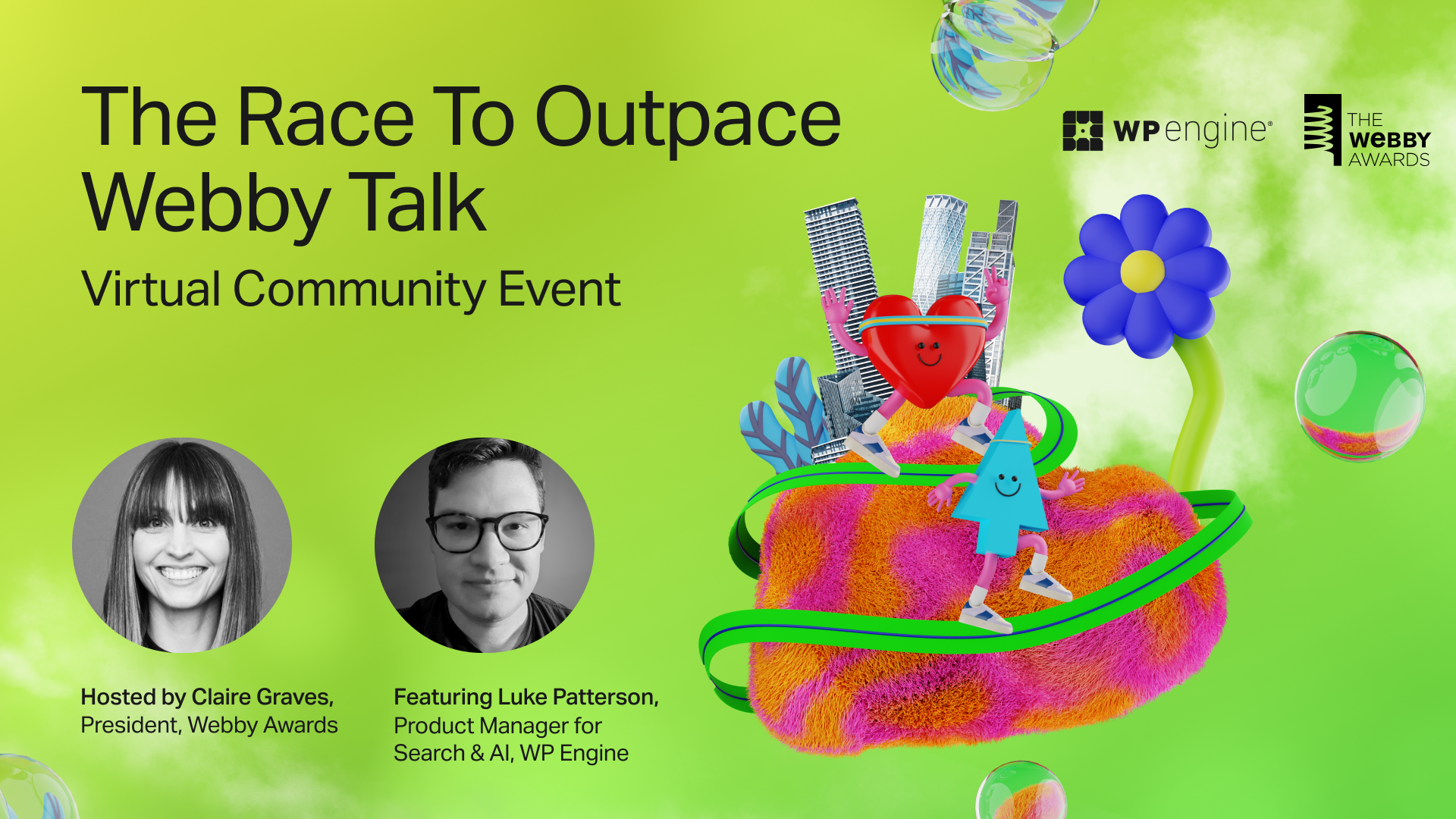2023 was defined by AI: What it is and can be, which new tools are worth the investment, and how growing innovations will impact the future of work. As more companies explore this new tech, brands and agencies are faced with a great opportunity: retool their offerings to make the most with AI.
To help, The Webby Awards hosted a special edition of Webby Talks: The Race to Outpace thought leadership event. In partnership with WP Engine, the event explored the rapid pace of AI innovations and four opportunities to elevate your work with this new tech. Following, a fireside chat was hosted with AI expert Luke Patterson, Product Manager for Search and AI at WP Engine on how brands can use AI for better customer experiences.
ICYMI: explore our takeaways on how AI can enable better web experiences, and how companies can upgrade their tool stack to increase personalization for consumers.
1. Use Machine Learning to Understand User Intent
When looking to work with AI, decision makers need to first understand the many forms of artificial intelligence. Learning the many buckets of AI is the first step to using it in a meaningful way for your company.
“When we want to apply large language models, it’s good to get specific about what is in the realm of possibility here,” said Patterson.
Machine learning and deep learning—training computers to process data in a way that mirrors human intellect and improves accuracy—can be better used to understand user intent. Quicker, or more robust, knowledge of what drives users can allow brands to build more personalized experiences, particularly in e-commerce sites, and in-store experiences.
2. Keep Humans in the Loop
The most worthwhile use cases work to solve real issues, faced by real people. According to Inbal Shani, Chief Product Officer at Github, the key to fulfilling customer needs with deep learning “is to keep humans in the loop.” While tools using artificial intelligence cannot solve problems for themselves, Patterson stressed that leaders should apply them to solve real problems for real people.
3. Summarize and Search
When looking to start using large language models (LLMs), use it for tasks such as summarizing. According to Patterson, there’s an array of AI tools that can be used to enhance a personalized touch with your customers — from communications to recommendations.
This can help you shorten the loop of what your customer or clients needs are. A quick example is more advanced search results or summarizing your communication history with a client, to quickly recall their priorities or concerns. These tools are not a quick fix—brands and agencies must still use a human-centric approach and understand customer needs in the first place.
4. Know Your Domain to Personalize Loyalty Experiences
The key to implementing true personalization is to “understand the particulars of your day,” said Patterson. It also requires leaders to have great understanding of content and their problem domain.
More importantly, personalization can create better loyalty experiences and increase a customers’ connection to a brand. The key is in pulling and summarizing customer data, desires and preferences more quickly with AI tools.
AI Tool to Try 🔥: Gong is an AI-powered revenue intelligence platform. It records and transcribes sales calls, aggregates historical data on company leads and more.






